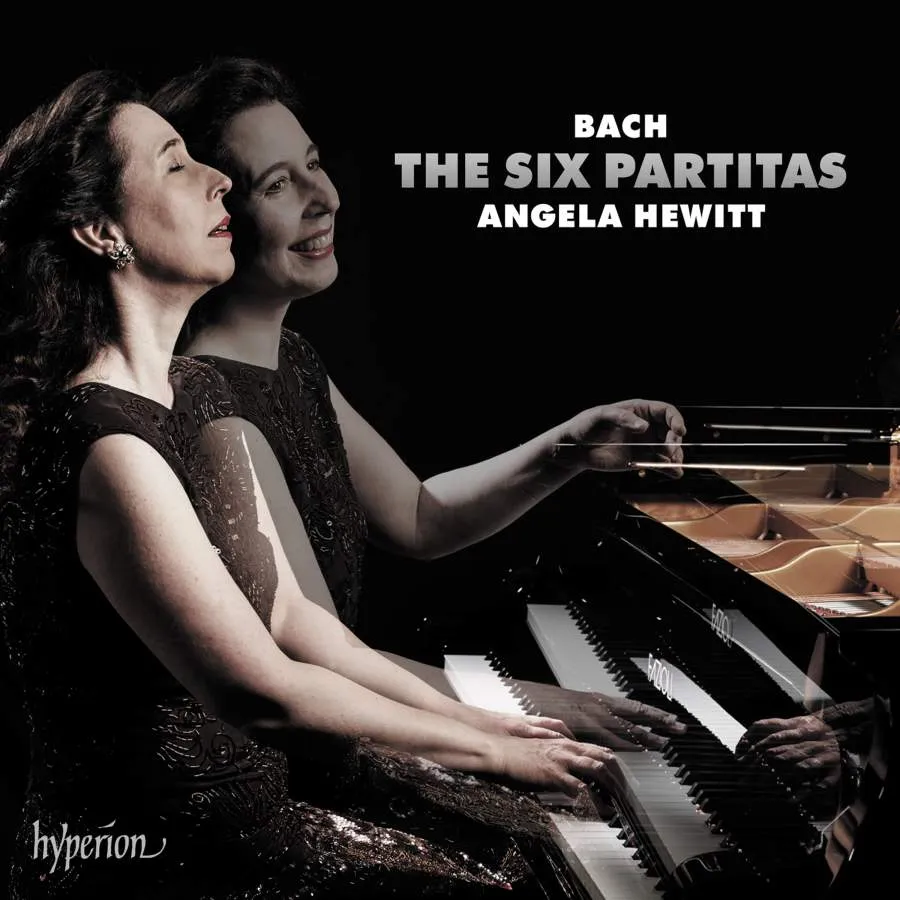
JS Bach Partita No. 1 in B flat major, BWV 825; Partita No. 2 in C minor, BWV 826; Partita No. 3 in A minor, BWV 827; Partita No. 4 in D major, BWV 828; Partita No. 5 in G major, BWV 829; Partita No. 6 in E minor, BWV 830 Angela Hewitt (piano) Hyperion CDA68271/2 149.56mins (2 discs)
Incredibly it's over 20 years since Angela Hewitt last recorded the Partitas for Hyperion. At the time, modern recordings of Bach’s keyboard music were dominated by harpsichordists – András Schiff’s fine 1980s/’90s series of recordings for Decca was another glorious exception to the general rule. So to hear this wonderful music played by Hewitt with such a remarkable sense of style and poise on a concert grand was a special treat for listeners of all persuasions. Here at last was someone who engaged fully with the sonic sophistication of the modern piano yet sounded so completely inside the idiom that questions of authenticity seemed to fade away. It was also the closest anyone had got to the pinnacle of recorded Bach pianism – Dinu Lipatti’s legendary 1950 recording of the B flat Partita (No. 1).
The one reservation I had about Hewitt’s older set was a slight lack of dramatic narrative – of the music having a compelling sense of emotional direction. Not so, it would appear, in this new recording, captured in conjunction with Hewitt’s ‘Bach Odyssey’ – a cycle of 12 recitals featuring all of Bach’s keyboard works, due to finish this summer. This time around, on her own Fazioli instrument, Hewitt sounds completely immersed in the music’s expressive soundworld, as well as its peerless structural logic – she’s more inclined to take her listeners by the hand and say ‘listen to just how wonderful this passage is’.
Whereas before there was a slight sensation of ornaments being immaculately rendered and shaped as a special point of executant focus, this time around they emerge as a natural, organic extension of the musical process. There is also an enhanced sense of imperativeness in the darker C minor and A minor partitas, as though a thin veil of interpretative cool has been lifted to reveal the music’s molten inner core. In the final E minor Partita, the pearly clarity of the Fazioli and Hewitt’s exquisite touch, which ‘sings’ in long lines without resorting to Romantic cantabile, combine to mesmerising effect, creating a palpable sense of musical culmination in arguably the finest work of the set.
Yet, what impresses most is Hewitt’s sheer joy and sense of wonder in Bach’s creative genius. The G major Partita can easily become over-emphatic in its easy-going assertiveness, yet Hewitt creates the impression of the music dancing on air, subtly cushioning her finger-action and micro-pedalling to create a magical soundworld of crushed velvet – the third movement Corrente sounds like musical water droplets falling gently and emanating gentle ripples of sound. Hewitt’s pointillist sensitivity to colour and texture reaches its apex in the D major Partita in which every aspect of the music is held in perfect symbiosis – the second movement Allemande is especially ravishing in its time-suspending fusion of dance and song, captured in glowing sound by Ludger Böckenhoff.
Julian Haylock